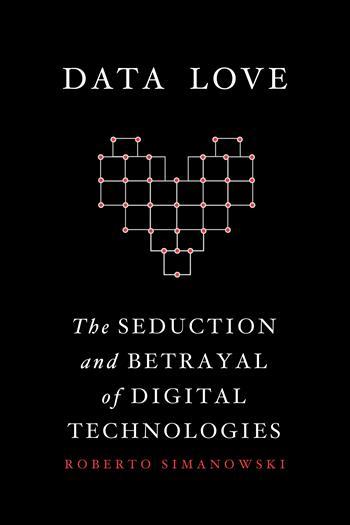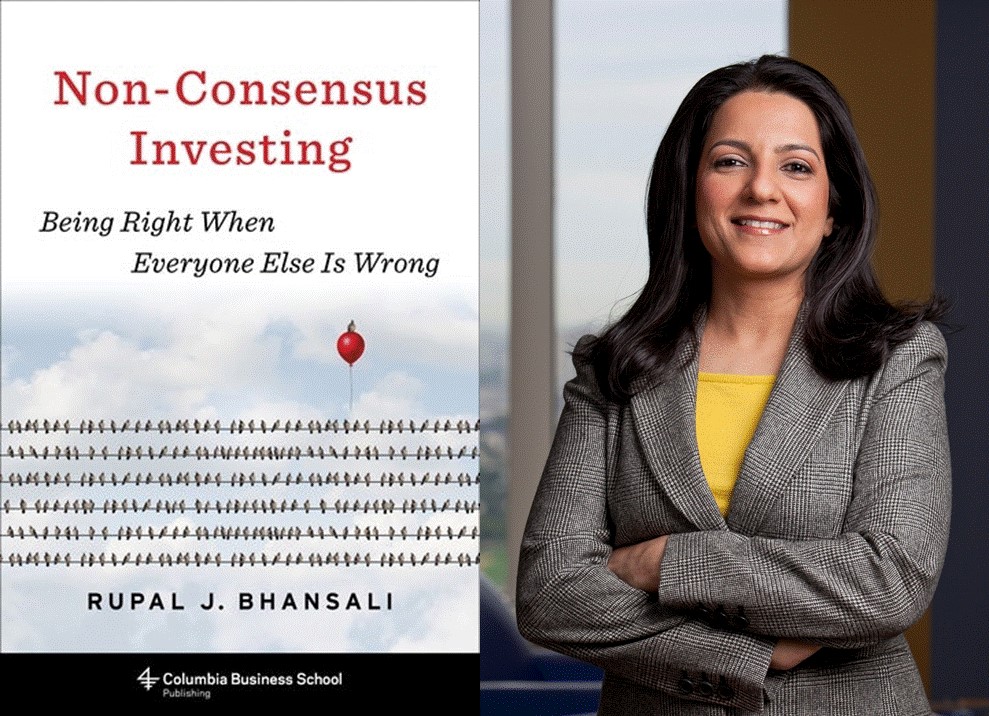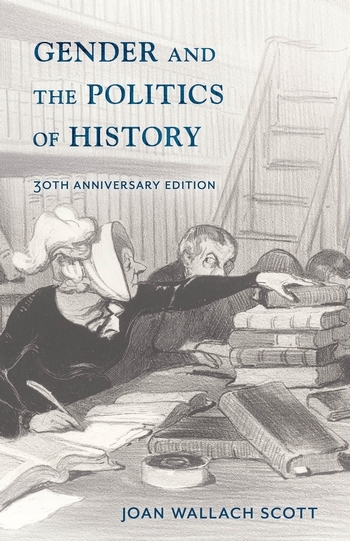Intelligence Agency Logic
“Intelligence agencies want to secure and enhance their effectiveness just as much as any other functional social system; whatever is technologically possible will be used. For this reason, ever since 9/11 intelligence agencies had been dreaming of the “full take” of all data from all citizens. What had failed to materialize until then, because of financial and technological shortcomings, became a real option with the increasing digitization of society. The consensus was that those who did not use the new possibilities for data collection and evaluation were refusing to work properly, which in this realm of work might almost be regarded as treason.” — Roberto Simanowski
This week, our featured book is Data Love: The Seduction and Betrayal of Digital Technologies, by Roberto Simanowski, translated by Brigitte Pichon, Dorian Rudnytsky, and John Cayley. Today, for the final post of the feature, we have a short excerpt from the book’s first chapter, Intelligence Agency Logic, in which Simanowski uses the case of Edward Snowden to examine popular and political reactions to government surveillance.
Don’t forget to enter our book giveaway for a chance to win a free copy of Data Love!
Intelligence Agency Logic
By Roberto Simanowski
In the summer of 2013 the twenty-nine-year-old IT specialist Edward Snowden flew into a foreign country carrying with him secret documents produced by his employer, the National Security Agency of the United States (NSA). From the transit zone of the Moscow airport and with the help of the Guardian and the Washington Post, he informed the world about the extent of the surveillance of telephone and Internet communications undertaken by American intelligence agencies. In doing this, the whistleblower Snowden became much more successful than Thomas Drake, a former department head at the NSA who, with the same motives, had criticized the excessive surveillance practices of the NSA first through official channels and then in 2010 by divulging information to a journalist from the Baltimore Sun, for which he was later accused of espionage. Snowden’s disclosures triggered an international sensation lasting many months, creating what historians at the time characterized as the last great epiphany to be experienced by media society.
This is how a report on the events of the NSA scandal of 2013 might begin in some distant future. The report would evaluate the event from a respectful historical distance and without the excitement or disappointment of earlier historians. From the distant future, this moment of revelation would prove to have been the last outcry before the realization that there were no alternatives to certain unstoppable technological, political, and social developments. The report from the future would reconstruct the case with historical objectivity, beginning by explaining how world leaders reacted.
The United States declares Snowden’s passport invalid and issues a warrant of arrest for the breach of secrecy and theft. The Brazilian president protests at the United Nations over spying on Brazilian citizens (including herself ). She cancels her planned meeting with the president of the United States and by creating an investigative committee again proves her capacity to act after the traumatic experience of the “#vemprarua” upheavals in her own country. Ecuador— its embassy in London housing the founder of WikiLeaks, Julian Assange—offers asylum to Snowden, thereby forgoing U.S. customs benefits. Germany denies Snowden’s request for asylum on the technicality that one cannot file an application from a foreign country. Russia grants asylum to Snowden for one year, provoking a further cooling of its relations with the United States and immediately causing the cancellation of a planned summit meeting between Obama and Putin.
Net theoreticians appreciated Snowden’s act because it forced society to debate matters that were long overdue for discussion. But acclaim did not come only from this quarter. Peer Steinbrück, the Social Democratic Party’s candidate for the chancellorship of Germany, and the European Union’s commissioner of justice, Viviane Reding, thanked Snowden for his civil courage and the debate he initiated. Even a former president of the United States, Jimmy Carter, supported Snowden. The state’s invasion of the private sphere, he claimed, had been excessive, and Snowden’s disclosure would in all likelihood prove useful in the long run. The current president remained inflexible in his thinking, although at a White House press conference on August 11, 2013, he conceded that the work of the NSA had to be more transparent. He announced that a commissioner for data protection would be appointed. But President
Obama was vehemently opposed to the idea that Snowden should be treated as a patriot and not as a traitor: “No, I don’t think Mr. Snowden was a patriot. I called for a thorough review of our surveillance operations before Mr. Snowden made these leaks. My preference, and I think the American people’s preference, would have been for a lawful, orderly examination of these laws.” Even if it were the case that Obama was a step ahead of Snowden, there’s no
denying that Snowden’s act accorded with the impetus of Obama’s review. Nonetheless, Snowden’s nomination for the Nobel Peace Prize in 2014 underlines how different the reactions to Snowden’s “treason” have been, especially when it comes to assessing the effect of his act on the world order.
The disclosures and accusations did not implicate the NSA alone. The British intelligence agency was also involved, and, as was later discovered, the German Federal Intelligence Service was working closely with the NSA, which should not have surprised anyone since, after all, a part of the September 11, 2001, team of assassins had come from Hamburg. It was generally known and widely accepted that this catastrophic event had justified many governmental data breaches and restrictions of civil liberties in the new millennium. The belief that defense against international terrorism inevitably requires limits on data protection was shared by the Obama administration and many other politicians. Even moral philosophers agreed. Peter Singer, for example, valued the gain in security over the loss of privacy in his essay “The Visible Man: Ethics in a World Without Secrets” (2011) since he considered privacy
a recent, chiefly Western phenomenon in the history of mankind, one whose importance he relativized. It was particularly easy at the time, our future report might conclude, to smooth the way for the transition from a democratic society to a surveillance state by way of fear and “prudence.”
If the future report were written by a German, it might at this point possibly refer to Christian Heller, who, simultaneously with Singer but independently, had published a sort of guide to the inevitable in his 2011 book Post-Privacy. Prima leben ohne Privatsphäre (Post-privacy. How to live well without a private sphere). Heller, the future report may then state, overcame the historical trauma of surveillance that has haunted German collective memory since the Third Reich and then the German Democratic Republic. It is possible that the report would regard Heller’s book as igniting the spark for “the transparent 90 percent,” the late 2010s citizen’s movement that demanded more intensive security controls and attracted more and more followers. With their slogan “we have nothing to hide,” they refused to risk their own lives for a minority’s excessive adherence to privacy. The report would show how the followers of this movement proudly repudiated any kind of encryption in their digital communications, how they voluntarily installed the federal government’s Trojan software on their computers and mobile devices, and how they were rewarded in return with VIP biometric security passes that granted them the use of special airplanes, subways, and buses.
No matter how these reports from the future would conclude, such a civil movement could be counted on to subscribe to statements such as the one from the German secretary of the interior at the time, Hans-Peter Friedrich of the Christian Social Union, who maintained that security is a “superfundamental right,” or like the one by the former secretary of the interior, Otto Schily, the “red sheriff ” of the Social Democratic Party, who declared that law and
order are social-democratic values and that the biggest danger does not come from the state and its intelligence agencies but from terrorism and organized crime.
Secretaries of the interior are, by nature, partisans of the work of their intelligence agencies, over and above party-political lines. After all, the government issued the mandates for which these agencies are now being publicly scolded, namely, to ward off threats to the inner security of their countries by way of the undercover investigations of possible risks. As Friedrich said in the context of the NSA affair, nobody should be astonished or upset when intelligence agencies use the latest cutting-edge technologies. Intelligence agencies want to secure and enhance their effectiveness just as much as any other functional social system; whatever is technologically possible will be used. For this reason, ever since 9/11 intelligence agencies had been dreaming of the “full take” of all data from all citizens. What had failed to materialize until then, because of financial and technological shortcomings, became a real option with the increasing digitization of society. The consensus was that those who did not use the new possibilities for data collection and evaluation were refusing to work properly, which in this realm of work might almost be regarded as treason.
It is obvious that the situation after 9/11 cannot be compared with that under the Stasi in former German Democratic Republic. In the Federal Republic of Germany the intelligence agency is constitutionally legitimized and controlled by parliament, even if not all members of parliament see it this way and continue to demand more transparency. The stronger argument is a technical one: Surveillance is no longer done by an intelligence agent who scrutinizes
the letters and conversations of an individual but by software that searches for certain key terms. Even though the surveillance is more all-encompassing because of its use of modern technologies, it is also more anonymous and more democratic because it is not aimed at specific individuals but at all of society, including the intelligence agent himself. One could regard this as the perfect solution to an internal contradiction within every democracy: As
the work of intelligence agencies becomes more and more effective and cost efficient, the private sphere of citizens is increasingly protected by the machinery of such “distant reading.”







